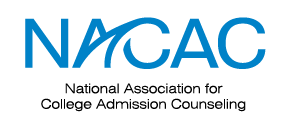Peak College Consulting, where we Think Big, Reach High and Achieve More... together.
|
High school students often face the challenge of selecting the appropriate classes to prepare them for college and impress college admissions officers. With so many available options, students may struggle to choose the courses that best serve their academic and career goals. This can lead to missed opportunities, lower grades, and a less competitive college application.
Taking more challenging classes demonstrates academic preparedness, intellectual curiosity, and ambition. Colleges want to see students ready for the academic rigor of college and who can handle the challenges of college-level work. Advanced Placement (AP) and IB courses are designed to be college-level courses. Students taking AP and IB courses show they are ready for college-level work and have the skills and knowledge needed to succeed in challenging academic environments. Not every student is ready to take the more rigorous courses that AP and IB offer, but they should still set the bar high and think about what class level they could push themselves to and still succeed. If a student is in a CP-level course and maintains a strong A or B grade, the following year, they should push themselves to take that class at an honors level. A student can move from one level to another without a straight A. Each high school will have its own rules about leveling up. Understanding the rules and what parents and students can do to advocate for such a move is essential. After countless meetings with admissions officers, it is the consensus that colleges and universities value rigor over grades. This is especially true for smaller colleges with a more holistic approach to the admissions process. Larger universities that receive thousands of applications may need to first look at overall GPAs to weed out the vast numbers of applications they receive. However, ultimately, they are also looking for rigor over grades. Not all high schools offer the same selection of classes, so students should work with their guidance counselors, teachers, and college advisors to find the most challenging courses available to them that they can be successful in. Students interested in attending the most highly selective (or rejective) colleges and universities must maximize their AP/ IB courses each year of high school. Knowing this early on can help prepare for the most rigorous transcript possible. Those students who know what they want to major in have the advantage of exploring classes in high school that align with their interests. This fit to major is an essential aspect of the admissions process. Being mindful of a student's interests and finding courses that are available to support that interest is key in the class selection process. We tell our students to make sure their electives are meaningful to them. One reason this is important is to show the colleges you are applying to that you are well informed and educated on a particular topic and, therefore, will be more likely to stay with the major you applied to. Another reason that electives are essential is that they can help students identify genuine interest in a specific topic or not. This can be an equally as important step to finding true passion. Dual enrollment classes have become popular throughout the nation's high schools in recent years. These classes are usually taught at a community college or by high school teachers. They are often less rigorous but weighted as much as an AP class, which makes them very popular. Parents, students, and teachers need to know that most colleges and universities do not see DE classes as equal to AP or IB courses. From a college admissions standpoint, dual enrollment isn’t considered as rigorous as IB or AP programs. However, it is still an excellent option for earning credit and exploring niche areas of interest if the AP level is too difficult. Dual enrollment allows students to earn credits for high school and college. However, not every university will accept the credits earned because these DE classes are not standardized. Senior year is not the time to take the gas off the pedal. We always suggest that our clients continue taking at least five core subject classes, including science and foreign language. If a student wants to skip a fourth-year language or an additional science class, we suggest doubling up in math and English. Each student's transcript is unique to them; however, taking a break your senior year and filling it with less rigorous electives can be detrimental when it comes to acceptance into college. Although it varies from college to college, most institutions want to see at least the following:
|
Categories
All
Archives
January 2024
|
Follow our socials! |
Associations |
Contact us978-518-1696
[email protected] 29 Daniel Lucy Way Newburyport, MA 01950 Schedule an appointment now! Credit Card Registration Instructions |
Copyright 2022, Peak College Consulting







